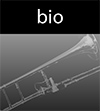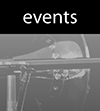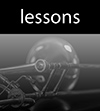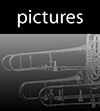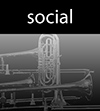Featured Article: A Tale of Two Auditions
Douglas Rosenthal
This is an account of a specific time in my specific life. What I did for these specific auditions worked well enough specifically for me at these specific moments. I hope you find it helpful, insightful, or at the very least, entertaining. This is my path to being the last person standing in auditions for the Utah Symphony (February 5-6, 2012) and the Washington National Opera/Kennedy Center Opera House Orchestra (February 7-9, 2012), my nineteenth and twentieth professional orchestra auditions.
Let me back-track to September, five months prior, when I auditioned for the Atlanta Symphony. I had achieved a high level in my preparation, but, mentally, I was desperate. Toxic worries swarmed all around my head. "What will [friend/family member/teacher/trombone player] think of me if I don't advance?"; "I've done so many auditions, when will I ever get a job?"; "[Successful person] had a job by this age, why don't I?" I was in an awful state of mind. Well, not surprisingly, I didn't do well at the audition. In fact, I didn't make it past four excerpts of the first round before hearing the dreaded "Thank You". Clearly, there were some seriously overlying psychological issues that were bleeding into my trombone playing: Fear of judgment, lack of trust in myself, and destructive self-talk, just to name a few. Unfortunately, this signified a bit of slump for me, as I had previously made tremendous strides on the psychological side of performance preparing for auditions earlier in the year. I especially did a lot of work using the concepts of performance psychologists Dr. Don Greene and Dr. Noa Kageyama. They were especially helpful in laying out a systematic approach to defining goals and expectations as well as how to go about performing. (If you don't know who either of these people are, Google them. Right now. I especially recommend Dr. Greene's book Performance Success and Dr. Kageyama's blog The Bulletproof Musician. In particular, I have benefited greatly from their technique called "Centering", which you will find in these resources.)
Eventually, I did get all of that good stuff back in my brain, and I was able to regain those techniques. As I was beginning my third year as a New World Symphony fellow in October, I started seeing a therapist. Not because of the Atlanta audition, or because of any particular stressful element in my life. There just happened to be a really good therapist whose office was a few blocks away from the New World Symphony, and I had always been interested in exploring the realm of psychology. (Let's face it, we all have issues.) We never really discussed my career at great length. One of our most substantial topics, however, was silencing the critic within. Not just onstage, but everywhere: meeting new people, interacting with people I already knew, standing in front of a mirror or on a scale, trying on new clothes...that critic is ALWAYS lurking! (And you better believe he's with me right now as I write this article.) I learned that, if the critic is so powerful in all these other aspects of life, he's going to feel right at home during a performance, waiting for me to miss notes or for my mute to fall out during a quiet moment.
My preparation for the Utah Symphony audition began the next month in November. They announced the repertoire list, and I compiled all of the pieces together to make an audition book. (Life is easier without 30 loose-leaf pages of music floating around!) Now, it was time to plan for three months of preparation. In previous experiences, having more than six or seven weeks at my disposal led to rather unsuccessful auditions, as paradoxical as that may seem, so I decided to hold off until January for any rigorous practice. I figured it would be best to just do some slow and steady work on excerpts that had given me problems in the past (Bolero and Russian Easter Overture), some standards (Tuba Mirum and Ride of the Valkyries), and anything I hadn't previously played (Fountains of Rome).
Early in December, I had a lesson with Joe Alessi in New York, and I used this as a reasonable goal for having these pieces ready. We accomplished a good deal, especially in terms of having a game-plan for everything that we worked on. (I'd like to add that Joe has an especially effective approach to "Bolero"; if the rhythmic component of this excerpt is plaguing you, as it was with me, I strongly urge you to seek him out.) After the lesson, thinking of the auditions ahead, I already knew that I was going to hit the ground running in January. So, I chose to do slow and steady work throughout the rest of December. I only played the pieces mentioned above as well as the two solos for the Utah audition, the Trombone Concerto by Derek Bourgeois and the "Sarabande" from Bach's Cello Suite No. 5. Because I had never played the Bourgeois before, I started practicing under tempo at first (mm=66 bpm), and each day, I increased the tempo by 4 bpm, not reaching full speed until the end of the month. I practiced one phrase at a time, first singing while moving the slide, then playing it. I repeated this two more times before moving on, ultimately going through each phrase six times a day. As for the Bach, I saw this as an opportunity to improve my intonation, which definitely needed the attention at the time. I only practiced one phrase of the piece on any given day. I began by playing the first note while looking away from the tuner, then looking up to see "how I did." I remembered where it was "correct" on my slide, then I moved to the next note and did the same. After getting through each note individually, I would play the entire phrase very slowly with the tuner. (There will always be a debate over whether a tuner is helpful or hurtful, but I can say for certain that this process improved my ear, my muscle memory, and my confidence.)
By now, weekly sessions in therapy had helped me put my mind in a much better place. I had a great deal of clarity, in so far as I was content with my daily work and felt absolutely no pressure to win, or even advance at, these upcoming auditions. One day, I had a "light-bulb moment," something that would eventually become a mantra: "My happiness as an individual is not dependent upon employment in any of these orchestras." It felt like something from a cheesy movie, even made me chuckle to say it out loud, but I believed it. And I said it to myself so many times over the course of the following weeks that it went from being a philosophy I agreed with to a philosophy that I lived with. Essentially, I took the focus away from my fears and expectations, and instead put it towards my playing.
At the end of December, while away on winter break, the Washington National Opera/Kennedy Center Opera House Orchestra made their list available. Every excerpt was posted on a website, so I was able to start preparing before returning to New World. Being winter break, of course, I didn't [want to] do much [of anything], but I still acquired recordings to all of the operas and practiced a few contrasting excerpts every day. I chose from those that I had never played before and those that had previously given me trouble. I mostly worked on the solo from Ambroise Thomas's Hamlet, the beginning of Act III in Verdi's Falstaff, and the end of Act I in Wagner's Siegfried. I didn't practice these as strictly as the Utah solos, but I made sure never to play them at a faster tempo than I was capable.
So, very early in January, I headed back down to New World and immediately made an audition book for the repertoire of the Kennedy Center's audition list. (Be nice to orchestra librarians. They work tirelessly, and they are an abundance of resources- one of which can be an often-free photocopy machine...) Now, it was time to get my ducks in a row. Those of you who know Mike Roylance's audition preparation will be familiar with this system. Every piece from both lists was eventually assigned to one of three days, and each day had an equal representation of styles.
1.) I cut up congruent squares of paper and labeled each with either a solo or an excerpt.
2.) I took another piece of paper and wrote out three different columns, which were categories for excerpts: "Lyrical", "Technical", and "Range/Endurance". Each excerpt was placed under an appropriate category. (e.g. Tuba Mirum, Hungarian March, and Also Sprach Zarathustra, respectively)
3.) I took three envelopes and labeled them "Day A," "Day B," and "Day C". Each envelope got one solo's square. (Conveniently, there were three solos between the two auditions.)
4.) I took all of the "Lyrical" excerpt squares and evenly distributed them among the three days, then did the same with the subsequent two categories.
So, I had 3 envelopes with squares of paper in them. Yes, life was pretty exciting that day. (For those of you who wish to know more about Mike Roylance's audition preparation, I have been told that he is about to finish a book on it. I know I will be buying a copy!) Before I began going through this whole process, I knew that I wasn't going to be able to practice every assigned excerpt every day. (What am I, Superman?) Therefore, I chose one audition to front-load everyday. If my chops were too tired, or if I didn't have enough time, I had to accept that I couldn't practice everything for the other audition I had planned on playing that day.
Now began the intensive preparation. I have a practice routine for fundamentals that lasts about 30 minutes, and I started every morning with it. (I play the exact same thing every day, note for note. This may contradict your own outlook on practicing, but I can quantifiably tell you that the consistency keeps me in my best shape.) If I had a rehearsal following this, I made sure to allow at least 20 minutes of rest beforehand. If there was no rehearsal, I came back to the trombone in the afternoon.
My next practice session was devoted to the solo of the day and the excerpts from the audition that was given first priority. I took all of the corresponding squares from that audition out of the envelope. I shuffled them and put them in a single pile, and that would be the order I would practice. This helped me detach from thoughts like "I can't play Bolero first"; "I don't want to do Saint-Saëns's 3rd after something loud"; "They'd never ask for the solo last"--because I could never know how things were actually going to happen on the day of an audition. Square by square, I'd go through the pile. First, I recorded each piece to hear what needed improvement, and I would work on those issues. Then, I recorded the piece again. If there was noticeable improvement, I would move on to the next excerpt. I was never striving for perfection, just improvement. These are the areas of playing that I monitored:
Appropriate tempi (determined beforehand by listening to recordings)
Stability of rhythm (and organic accelerandi/ritardandi)
Intonation
Stability of pitch
Evenness of sound
Phrasing (and making sure breaths were appropriately executed)
Clarity and appropriateness of articulation
Pacing and appropriateness of dynamics
Appropriate timbre and vibrato
Making sure a listener could imagine the rest of the orchestra playing
Activation of the body with no excess tension
I should note that I never played for more than 30 minutes in one sitting, and I'd give myself 10-15 minute breaks. I estimate that, including breaks, this entire practice session typically lasted between 90 minutes and two hours. Assuming my chops and my schedule allowed me to, I went on to the other orchestra's list later that day, most often in the evening. I went through the exact same process as above. Because there was a good amount of crossover between the two lists, this session would generally only take me one hour, including breaks. Whenever I decided to stop for the day, I always set aside three or four minutes to do some relaxed, easy warm-down playing. I found this helped to ensure healthy chops for the next day.
As I got closer to the auditions, I noticed little hints of the negative critic trying to make his return. They came out nowhere; I'm telling you, the inner-critic is really good at his job! I always fended him off with that mantra, "My happiness as an individual is not dependent upon employment in any of these orchestras." This phrase ran through my head like waves in the ocean, and it made that critic weaker and weaker. In addition to this improved mental state, I truly believe that the best thing I did for myself was performing mock auditions. Essentially, I asked friends to come into a large rehearsal room, form a list for me to play, and follow along with the music, making comments along the way. (I don't know about you, but I've always felt that being judged by friends and peers is far more intimidating than being judged by strangers!) Some of the mock auditions were informal, but some felt like the real deal: there was a screen set up and a proctor, I had to wait in a room beforehand, I was asked to play pieces differently, etc. I am so indebted to my friends at the New World Symphony for giving me their time to make these happen. I executed mock auditions as I would a professional audition, including centering (as mentioned in the beginning) before each piece. My friends had very helpful comments, and I recorded these mock auditions. I became familiar with how I perform under pressure; it is amazing how "at home" I felt during the auditions in February.
So for four weeks, I practiced with envelopes and squares of paper, and I played lots of mock auditions. January 29th marked exactly one week before the first audition. I made sure to be constantly hydrated and well-rested. (8-9 hours of sleep every night, and boy did it feel great!) I ate what I was used to eating, I didn't try to start doing any pristinely health-conscious diet. I also stopped drinking coffee throughout this whole week. (I knew I'd be jittery enough, I didn't want to be making it any worse.) The recorder, metronome, and tuner went away, and so did the mock auditions. The days of criticism were over; now, it was time to reinforce skills of delivering a "good enough" performance. Dr. Greene and Dr. Kageyama are both big proponents of this approach. For the remainder of this process, I didn't strive for my 100%; I shot for my 85-90%. This may seem counterintuitive, but let me describe it a little differently. I had been putting a lot of emphasis on polishing my audition music in the previous four weeks. I was certainly happy with "Doug's Best", but I was also proud of "Doug's Close-to-Best." Since that was the case, I didn't need to do "Doug's Best" to put on a good show, so why agonize over that 10-15% difference? After all, "My happiness as an individual is not dependent upon employment in any of these orchestras."
I spent each day this last week doing three 30-minute sessions: one in the morning, one in the afternoon, and one in the evening. I have found that a little playing over the course of the day will keep me in top shape, rather than cramming it all into one big session. The first session was the same practice routine as always. The second and third were devoted to the audition music. I no longer used the envelope system, and neither audition got priority anymore. Instead, I started with the usual suspects (Tuba Mirum, Bolero, etc.). I would play each of them once or twice in different tempi and styles, then as written. Being creative like this helped me keep the pieces sounding fresh. Then, I would practice the solos. I didn't run through them, but rather, I divided them a few phrases at a time. I would sing through a portion, then play it, and then I'd move on to the next chunk of phrases. The only exception was when I ran through the solos with a pianist once. (Thank you, Jason Shafer, for reading on a day's notice.) In the rest of the time that I had each day, I took half of the repertoire that still remained. With each, I sang and conducted, then played. The following day, I did the other half of those remaining pieces.
On February 2nd, I flew out to Salt Lake City. I usually don't like to travel more than a day before an audition, but since I had the week off, I wanted to do whatever I could to acclimate myself to the altitude. I played my 30 minutes of fundamentals before I left for the airport, and then I played 30 minutes of the Utah Symphony list into a practice mute when I finally got to the hotel at night. I then had two full days to kill before the first audition. At this point, I was focused on the Utah Symphony audition, so my Kennedy Center pieces sat on the back-burner. The wonderful people at the Royal Garden Inn let me play in the breakfast room to my heart's content (after breakfast), so I continued to do my three 30-minute sessions throughout the day. Two nights before the audition, I was able to catch a Utah Symphony concert. At intermission, I went to the front of the house and looked out, imagining myself playing the audition. This helped me feel a little more familiar with my surroundings on the days of the audition. I also caught up with friends who played in the Utah Symphony, checked out Salt Lake City, and took full advantage of Netflix and Hulu. And, of course, every time I got struck by a negative thought... "My happiness as an individual is not dependent upon employment in any of these orchestras."
So now, the audition. On both days, I made sure to show up at the hall warmed up and ready to go. I'm a big believer in Murphy's Law, "Anything that can go wrong, will go wrong," so I did my daily practice routine in the hotel lobby in case I didn't have the time or space at the audition site. Of course, I was well hydrated the whole way through, and I made sure to always have some substantial food in my stomach. (Granola bar, fruit, etc.) Before each round, I had the same agenda in the warm-up room. First, I played an easy minute-long warm-up. Since they had announced the list when we arrived, I sang and conducted through the entire round. Then, I played the first phrase of each excerpt. After doing that, I didn't even think about the audition music. I went straight to my iPod and played poker while listening to my favorite "chill out" piece: the 2nd movement of Ravel's Piano Concerto in G. Every five minutes or so, I would play a minute of easy, comfortable long tones and lip-slurs, just to stay warm. I alternated between Poker/Ravel and easy playing until it was time to go onstage. And, of course, going through my head, "My happiness as an individual is not dependent upon employment in any of these orchestras."
Walking out onstage for each round, nothing felt terribly intimidating. It was just like another mock audition, only in a more reverberant space. I have been going into rather descriptive detail in this article so far, but there isn't much to say about my execution once I was onstage. I simply played my tunes and centered before each of them. On the second day, when they asked me to change things, I made sure that the difference was dramatic, maybe even erring on the side of being overdone. And, of course, while waiting for results after each round..."My happiness as an individual is not dependent upon employment in any of these orchestras." I gave the committee what felt like "Doug's 90%" each round, and I was perfectly content with that.
There were certainly large chunks of down-time in this process. On the first day, I only played the preliminary round in the morning. I played one practice session in the afternoon, and that was all. The rest of the day, I did my best to keep my mind away from the audition, so I made phone calls, met up with a friend in the Utah Symphony, and watched Netflix and Hulu. On the second day, I had a couple hours in between drawing numbers and playing my semi-final round. So, I made some phone calls and had some pleasant conversations with the other people auditioning who were also waiting for a while. I went back to the warm-up room with about 20 minutes before playing. After a short lunch break, I played two final rounds: one individually and one in the trombone section. Luckily, I didn't have too much down-time until after I was finished playing for the day.
Well, the Utah Symphony offered me a trial period. I was elated; I had never made it this far. In fact, this was my first audition where the screen had come down for the final round, and it was also the first time I played in a section round. (Playing in between Larry Zalkind and Kyle Mendiguchia was a blast, they are such terrific players and wonderful people.) Truth be told, I was ready to be done auditioning for the week, my motivation to continue on to the Kennedy Center audition wasn't especially high. However, Murphy's Law kept me going. I wanted to have my bases covered; after all, I was given a trial, not a job offer.
The next day, I flew to Washington, D.C. (I booked the only direct flight from Salt Lake City that I could find, I'm always leery of flying with connections in the middle of winter.) I stayed with a good friend of mine, Brandon Eubank, a trumpet player in the U.S. Marine Band. He picked me up from the airport, and we went to a school where he teaches. While he taught, I did about an hour of playing: 30 minutes of my routine, 30 minutes of singing through and playing the audition pieces. (This was the one day in this whole process that I did everything in one session.) I was rather drained from traveling and the Utah audition, and I really wasn't playing as well as I had hoped. But, it didn't matter... "My happiness as an individual is not dependent upon employment in any of these orchestras."
I was able to play my practice routine the next morning at Brandon's house before heading off to the Kennedy Center's preliminary round. Again, staying hydrated and nourished, I went into the warm-up room with the same agenda: Warm up, mentally rehearse, play each first phrase, then alternate between Poker/Ravel and comfortable playing. Coincidentally, the entire preliminary round was comprised of pieces that were on the Utah audition. This was a bit of a relief, as I hadn't even laid eyes on the Kennedy Center music while I was out west. (In this regard, I wasn't being vigilant of Murphy...) I was in and out of my audition pretty quickly. I again gave what felt like "Doug's 90%". The remainder of the day, I only played through the excerpts that hadn't been on the Utah list for about 30 minutes in the afternoon. Otherwise, I was catching up with friends in Washington or watching TV. The following day was the last audition day for the week. I went through a very similar second day as in Utah, only there was no section playing or unscreened rounds. There was some down-time at the beginning of the day after we drew numbers, but otherwise, I was going through the same motions that I had been all week. I was getting rather fatigued, and so were my chops. In the semi-final round, when asked to make changes in my playing, I'm not entirely sure I was able to make all of the difference that the committee had wanted, but I performed "Doug's 85%". After a quick lunch, I pulled it together for a final round playing "Doug's 80%," or at least what felt like it. I went back to my warm-up room, and repeated that mantra that I'm sure you've had enough of. And the rest is history.
Moving forward, I eagerly await the adventures in store for me at the Washington National Opera and Kennedy Center Opera House Orchestra. I'd like to take a moment to discuss why I chose to join this orchestra, which I can sum up in one word: repertoire. I have always been intensely drawn to opera. Being a part of staged productions that span the worlds of music, theater, dance, the visual arts, design, literature, spirituality, history...that is a dream. I look forward to presenting these masterpieces to Kennedy Center audiences, and I am honored to join the ranks of such wonderful musicians and people.
If you'll please indulge me, there is a great deal of people to whom I wish to publicly express my gratitude. First, on the psychological front, I'd like to acknowledge Dr. Greene and Dr. Kageyama as well as my wonderful therapist Dr. Peter Popejoy. In the month of January, I had lessons with John Rojak, Craig Knox, Uwe Dierksen, and Joe Alessi. All four of these people are terrific coaches. In recent years, I have also had the support of the Tanglewood Music Center faculty-Toby Oft, Steve Lange, Doug Yeo, and Mike Roylance. They are excellent resources, and they really helped me find some missing pieces to the puzzle. During these auditions and every other endeavor I've pursued, I've had the most masterful, incredible mentors I could ask for by my side: Michael Mulcahy, Pete Ellefson, Charlie Vernon, Randy Hawes and Jay Friedman. This is starting to sound like an acceptance speech, so I'll cut it short now-- except to say that I am eternally grateful for the many people who have sustained me in my pursuits since childhood. (Hi Mom, Dad, Lauren, and Greg; I love you!)
If you'd like to contact me, please feel free to do so at trombonedoug@gmail.com.


